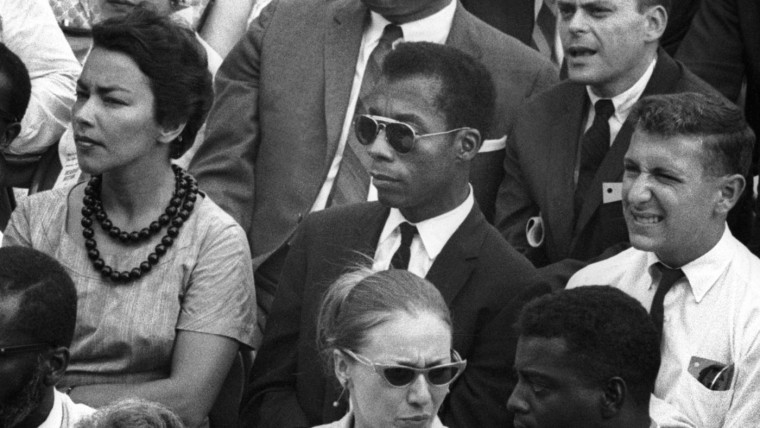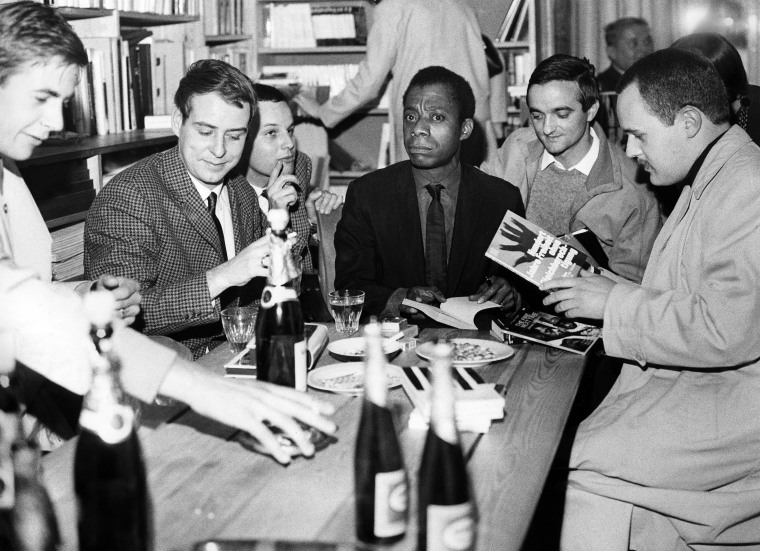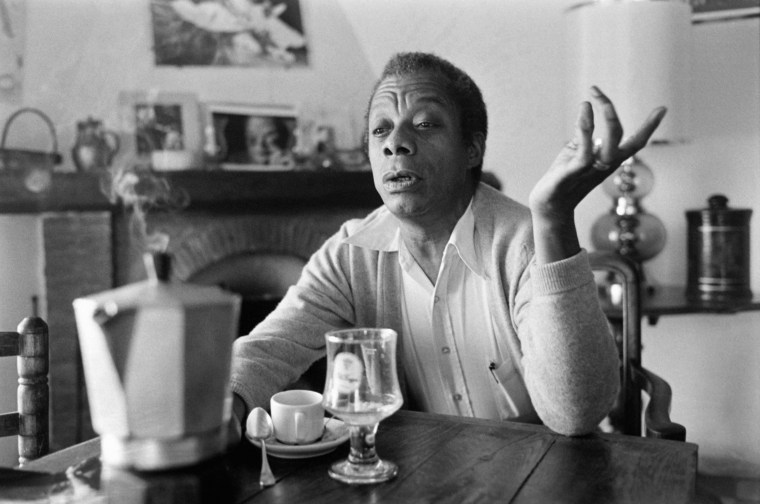Author. Radical. Activist. Public Intellectual. Unapologetically Black. Prophet.
These are words historically used to describe writer James Baldwin, subject of the Oscar-nominated documentary “I Am Not Your Negro," inspired by an unfinished manuscript Baldwin was working on at the time of his death in 1987 about the lives of Martin Luther King Jr., Malcolm X and Medgar Evers.
However, Baldwin’s complex sexual identity was largely avoided in the film, and this has has created mixed emotions for Baldwin fans and scholars.
RELATED: Baldwin Documentary Affirms Troubling Truths of Race in America
“Intersectional,” is how Chris Freeman, professor of English at the University of Southern California, describes Baldwin. “He was intersectional before there was a classification of intersectional,” Freeman told NBC Out. “He is the reason we even have the word.”
According to Michelle Gordon, a visiting assistant professor of African American studies at Emory University, it was Baldwin’s intersectional identity that made him an "outsider."
“All of that shapes his message and his life experiences and his interpretation of his life experiences,” Gordon told NBC Out. “Being Black in America. Being Black and gay in America. Being a Black American in Europe. Being Black and gay in the world. It all gives him outsider status, which allows him the ability to see the world so clearly, because he did not quite fit.”

It was that "outsider" status that influenced his work, his writing and his voice. Gordon, who saw the film the day after its release in Atlanta, references a point in the film where Baldwin spoke about why he chose to live abroad and how Black oppression stifled him as a writer.
“When he talks about that constant threat of death and of dogged dehumanization that he experienced in America, with that over his shoulder, he couldn’t write,” she said. “Going abroad let him ... be a writer and let him see America from a different angle. That outsider position that he seemed to frequently occupy in almost every group he was in is an important part of that and certainly his sexual identity and orientation is also big part of that.”
Baldwin’s sexual identity is referenced almost in passing in the film by way of an FBI memo. According to Gordon, during that time, the tactic of questioning one’s queerness was used to discredit individuals the government considered to be radicals. It was not only done to Baldwin but also others, like Langston Hughes.
RELATED: 11 Out Authors We Love
The memo is how the film’s director, Raoul Peck, broaches the topic of Baldwin's sexuality. There are other references to sexuality in the film –- one where Baldwin, in the voice of Samuel L. Jackson, talks about America’s fear to portray Black males as sex symbols in media. The other is when Baldwin shares the experiences of having to hide a relationship he had with a white woman while living in New York. He shares that he and the woman could not be seen together in public, having to walk on opposite sides of the street or ride on opposite ends of the subway train.
“His sexuality was as complicated as the rest of him and did not follow strict dichotomies of love,” Gordon said, adding that as viewers we have to have the mind of historians. “There are a lot of people who are uncomfortable about his homosexuality and his critique of his masculinity. For a long time, when he was talked about by scholars, it was not really about his sexual orientation. It has been in the past 15 or maybe 20 years that the discussion of his sexuality has begun.”
Freeman calls the omission a “major flaw” in the film.
“It presents only a partial view of why Baldwin had such an adversarial view of American culture,” Freeman said after seeing the film and listening to the director speak about it on PBS's "Tavis Smiley" show.

Charles Stephens, executive director of the Counter Narrative Project (CNP), pointed out Baldwin’s identity as a Black and gay man during the organization's screening of the film in Atlanta. He said CNP held the screening, because it believes Baldwin’s voice is needed now more than ever.
“Black gay men in particular have found in Baldwin a kind of father figure,” Stephens told NBC Out. “There isn't a single Black gay writer of literary fiction or nonfiction that has not been influenced by James Baldwin on some level. As we seek to navigate our current political moment, we believe that James Baldwin offers a necessary blueprint for how we continue to fight for social justice.”
Stephens said he does not think for a second that Baldwin’s sense of self in terms of his sexuality was marginal to his writing and activism.
“Perhaps he was ambivalent about sexual identity politics, this was not uncommon for his generation,” he said. “The Counter Narrative Project is committed to providing the context of figures like Baldwin, that have their legacies sanitized and reduced.”
"Timely" is how Gordon describes the film, even though, she admits, the film has some limitations.
“No one film or book can fully encompass a human being’s life or situation or story. For some, this may be all they get about Baldwin, and they will be the better for it,” she said. “But for others, this could be the spark needed for them to desire to know more. The film could and will introduce Baldwin to people who may have never encountered him otherwise.”

